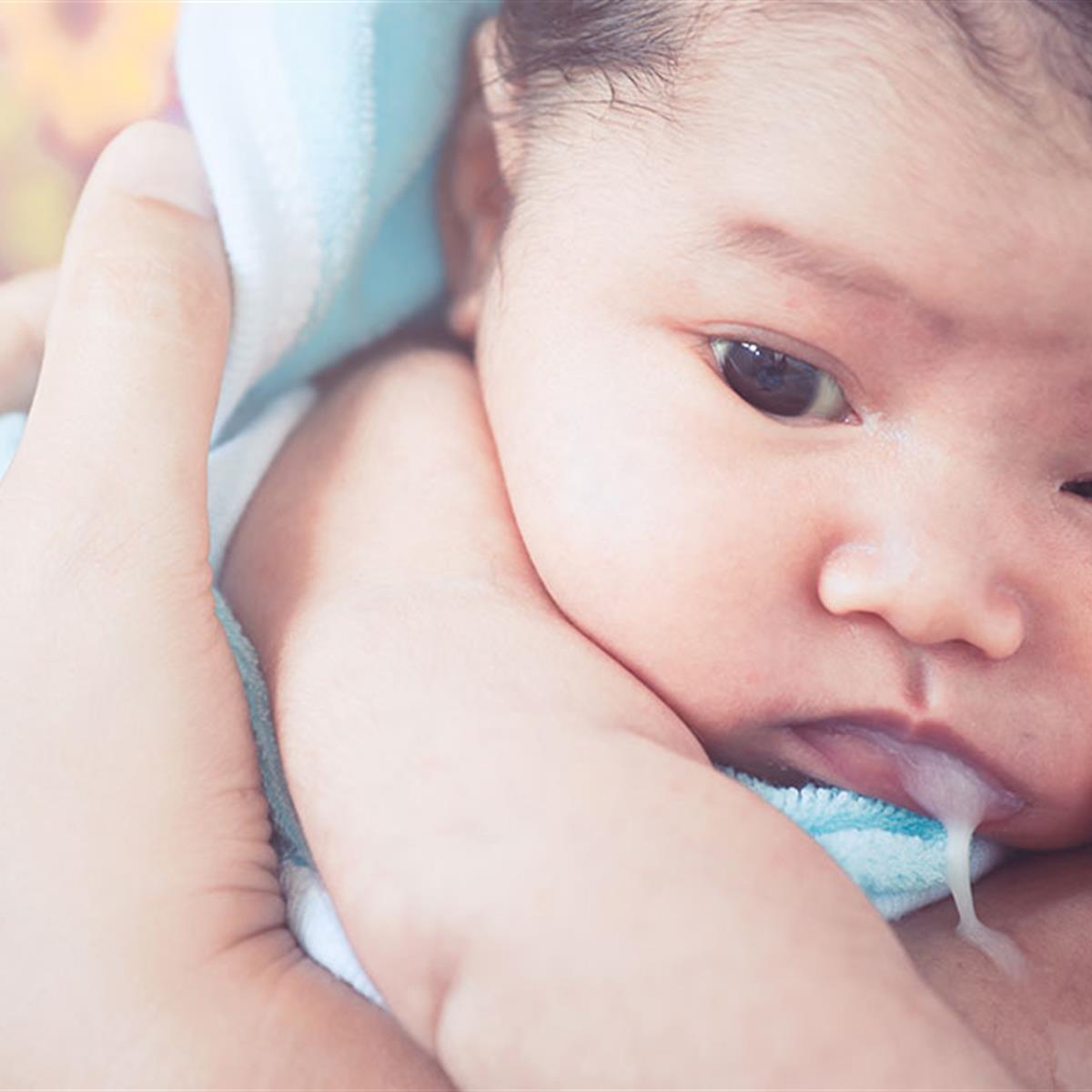Breastfeeding is a wonderful bonding experience between a mother and her baby. However, sometimes babies may experience vomiting after breastfeeding, which can be a cause of concern for parents. In this article, we will discuss some tips on how to avoid baby vomiting after breastfeeding.
1. Burp your baby after each feed
One of the main reasons for baby vomiting after breastfeeding is the accumulation of air in their stomach. To prevent this, it is important to burp your baby after each feed. Gently pat their back or rub it in circular motions to help release the trapped air.

Credit: www.aboutkidshealth.ca
2. Keep your baby’s head elevated
Another tip to avoid baby vomiting after breastfeeding is to keep your baby’s head elevated during and after feeding. This helps to prevent the milk from refluxing back up into their throat. You can use a specially designed nursing pillow or a rolled-up blanket to support your baby’s head.
3. Avoid overfeeding
Overfeeding can lead to a distended stomach, which may increase the chances of your baby vomiting after breastfeeding. It is important to feed your baby in smaller amounts, more frequently. This allows their digestive system to digest the milk properly without any discomfort.

Credit: www.healthychildren.org
4. Take your time during feedings
Rushing through feedings can also contribute to baby vomiting after breastfeeding. Take your time and allow your baby to feed at their own pace. This will prevent them from gulping air along with the milk, reducing the chances of vomiting.
5. Pay attention to your own diet
In some cases, what the mother consumes can affect the baby’s digestion, leading to vomiting after breastfeeding. If you notice that your baby is more prone to vomiting after specific foods or beverages, try eliminating them from your diet and see if it makes a difference.
6. Monitor feeding positions
The positioning of your baby during breastfeeding can also play a role in preventing vomiting. Ensure that your baby’s head is slightly higher than their feet while feeding. This helps to prevent milk from flowing back into their throat and reduces the chances of vomiting.
7. Avoid bouncing or jiggling your baby after feedings
After feedings, it is important to avoid any vigorous movements or activities with your baby. Bouncing or jiggling can disrupt their digestion and increase the chances of vomiting. Instead, hold your baby in an upright position for at least 30 minutes after feeding to allow the milk to settle.
8. Experiment with feeding positions
Every baby is different, and what works for one may not work for another. If your baby is prone to vomiting after breastfeeding, try experimenting with different feeding positions. Some babies may find relief in a more upright position, while others may prefer a reclined position.
Frequently Asked Questions Of How To Avoid Baby Vomiting After Breastfeeding
How Do I Stop My Baby From Vomiting After Feeding Breast Milk?
To prevent your baby from vomiting after breastfeeding, here are some tips: – Ensure the baby is properly burped after each feeding. – Avoid excessive movement or activity immediately after feeding. – Keep the baby’s head elevated during feeding. – Feed the baby smaller amounts more frequently.
– Experiment with your own diet if you’re breastfeeding. These practices may help reduce the occurrence of vomiting in babies after breastfeeding.
Why Do Babies Vomit After Breastfeeding?
Babies may vomit after breastfeeding due to overfeeding, swallowing air, or gastroesophageal reflux. It’s essential to burp the baby and feed in an upright position to minimize vomiting. Also, feeding smaller amounts more frequently and keeping the baby upright after feeding can help reduce vomiting.
Why Does My Baby Vomit Every Time I Breastfeed?
Your baby may vomit after breastfeeding due to a possible blockage in the stomach outlet. Consult your doctor if this occurs frequently.
Should You Try Feed Baby Again After Vomiting?
After vomiting, wait a bit before trying to feed the baby again to avoid further issues.
Conclusion
By following these tips, you can reduce the chances of baby vomiting after breastfeeding. Remember to burp your baby, keep their head elevated, avoid overfeeding, take your time during feedings, pay attention to your own diet, monitor feeding positions, avoid bouncing or jiggling, and experiment with different feeding positions. If the vomiting persists or you have any concerns, it is always best to consult your pediatrician for further guidance.
